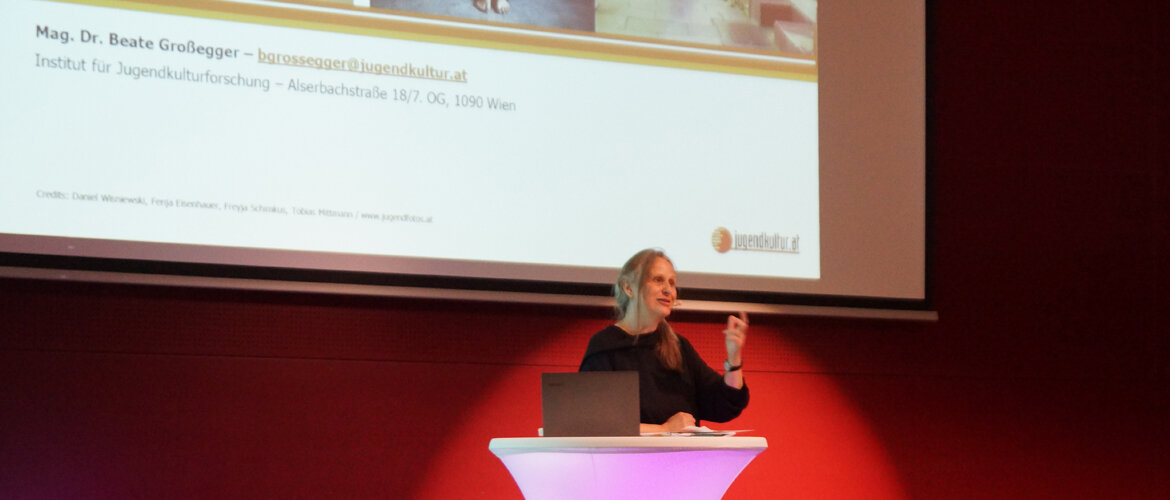Generation Z: What makes future students tick?
- 12.12.2022
- General

The speaker, Dr. Beate Großegger, a youth researcher and lecturer, reports on value studies of future students and how the next generation Z ticks.
The day of the teachers at the Kufstein University was dedicated to the change in values of the next generation Z. The event is a further education program organized exclusively for internal and external teachers of the FH as well as teachers of the higher schools in Kufstein.
As part of Teachers' Day, the University of Applied Sciences Kufstein Tirol was able to engage Dr. Beate Großegger from jugendkultur.at as a speaker. This day is a fixed point in the academic training of teachers from the university and the surrounding secondary schools, and is also dedicated to networking.
WHAT MAKES THE NEXT GENERATION TICK?
We live in eventful times. The COVID-19 pandemic, rising energy costs, inflation and the climate crisis are shaping the experiences of the next generation of students. The zeitgeist of youth culture has changed and young people's priorities in life and values are changing. The digital transformation is also leaving a clear mark on the everyday cultures of young people: it brings new opportunities and also new challenges for education and work. Dr. Beate Großegger - noted youth researcher (jugendkultur.at) and teacher herself - showed in her lecture, based on current findings in youth research, how much universities of applied sciences are challenged today. The students' concerns and fears, but also their hopes for their professional future, must be addressed in order to be able to specifically promote potential and reduce deficits in a student-friendly way. The aim of university education is to ensure that FH graduates are well equipped for the requirements of the labor market. In addition, she clarified the new challenges that arise for academic teaching from the observable change in the mentality of young people. A topic that led to a lively discussion.
VIDEO PRODUCTION MADE EASY
A second noteworthy topic was discussed after the lecture. Participants were able to take a look at video production, a hands-on workshop from the eLearning department at the University of Applied Sciences Kufstein Tirol. For some time now, the Media Lab at the higher education institution in Kufstein has been converted into an almost completely automated video production facility. With minimal operation and no prior technical knowledge, it is possible to record instructional videos in the Media Lab that can hold a candle to any face-to-face lecture. The recording process was explained step by step, showing how it is almost fully automated. Digital video production was originally developed for online teaching during the pandemic. Now that the pandemic is over, it has become an excellent way to enrich online teaching, combining easy operation with top-quality results.
